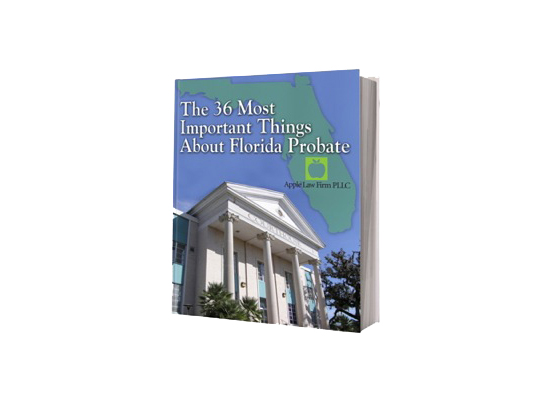LANDING SAFER
Special Needs Trust Lawyer
A Jacksonville Special Needs Trust Lawyer can create a Special Needs Trust which is a type of trust created to help support a physically or mentally disabled person. This type of trust is a great estate planning tool because it allows a disabled person to receive a large inheritance without losing any previously held government benefit such as Medicaid or SSI.
A problem often occurs when friends and other family members wish to give large inheritances to loved ones with disabilities. These large inheritances can seem like a great idea, but due to the high expenses of health care these funds can be extinguished surprisingly fast. Once these large funds are accepted the disabled person will often lose benefits such as Medicaid.
Federal and state care, such as Medicaid and Medicare are awarded on a need based system. This means that this care is only provided to people who are under a certain amount of wealth. The Affordable Care Act of 2010 has recently expanded the Medicaid eligibility level to 133% of the federal poverty level. In 2011, a family of four could not have an income of more than $29,700 to receive Medicaid. As you can see the limits are set quite low and can easily be exceeded even if the disabled person receives a relatively small inheritance.
Families with disabled members can attest that government support such as Medicaid is almost invaluable due to the high expenses of health care. Once a federal or state benefit is lost, the process to reapply for government assistance can be a lengthy and frustrating process. An even greater concern is the disabled person’s inheritance could be extinguished during the time period he or she no longer has government support. This could put the person with special needs in the disastrous position of no longer being able to receive the health care he or she desperately needs.
So How Does a Special Needs Trust Work?
A Special Needs Trust resembles many of the other trusts that our office provides by acting as a legal entity similar to a corporation. In the Jacksonville Special Needs Trust document, the trust maker known as the settlor will transfer property to the trust. The trust document will also name a trustee, or a manager of the trust, to manage the assets for the person with special needs. It is possible for the settlor and the trustee to be the same person. We also recommend our clients to name a successor trustee in the trust, which is a person that is willing to take over the duties of the trustee once the trustee is no longer able to perform his or her duties.
A Special Needs Trust can also provides other benefits for the disable person such as ensuring the person’s special needs are met long after the settlor of the trust passes. Each trust can be specialized to meet the specific needs of the beneficiary by giving specific instructions for the loved ones care. For instance, a trust can be so detailed as to ensure only certain foods are served or that a certain type of care is administered over other options. This means a parent who has provided for a disabled child his or her entire life can rest easy knowing the child will be cared for in the same manner long after the parent passes.
Anyone can contribute to a Special Needs Trust, but the individual may be limited in contributing for themselves without a family member, guardian or court order directing the funds to be placed in the Special Needs Trust. Usually the Special Needs Trusts is created by parents for their children, but anyone (friend or family) can contribute to the Special Needs Trust. There is also no limit to the number of Special Needs Trusts that may be created for the disabled person.
Once the Special Needs Trust Lawyer creates the Special needs Trust, the trustee must begin to administer the Special Needs Trust for the benefit of the beneficiary. A trustee will be responsible for supporting the beneficiary by the rules set forth by the trust document. The beneficiary’s care may also be left to the trustee’s discretion, but we advise clients to choose this option only when the trustee is someone the settlor trusts or when circumstances require it. The trustee’s main job is to support the special needs person without jeopardizing his or her government benefits. The trustee also has a duty to pay taxes, keep records, and to invest the trust assets if the inheritance is large enough. Therefore, if the settlor and trustee is not the same person we recommend the client also choose a trustee with some financial acumen.
A Special Needs Trust provided with government assistance can provide the most complete amount of support for a disabled person. This estate planning tool can make the most of these combined resources as well as ensure that the beneficiary’s quality of care remains consistent no matter the circumstances. Planning for the future of a loved one may seem daunting, but the benefits of a Florida Special Needs Trust can ensure a loved one is provided for the rest of his or life.












